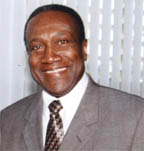Some Caricom states deliberately restricting free flow of trade – GMSA President
The promulgation of a Caricom Single Market more than two years ago has done little so far to accelerate fair and equitable access to regional markets by member countries of the Community, according to President of the Guyana Manufacturing and Services Association (GMSA) Ramesh Dookhoo.

In an interview with Stabroek Business earlier this week Dookhoo said that despite the stated regional goal of a Single Market and Economy “there remained sorry little evidence of a genuine collective commitment among Caricom member countries” at the levels of institutions and sectors “to the sharing of a single economic space.”
“We must not only talk about a single economic space, we must live that single economic space. We are concerned that what passes for a single market is still a lopsided arrangement,” Dookhoo said.
“The stronger producing countries of the region are seeking to impose their economic strengths on the region’s less developed economies without going the distance to promote products from those weaker economies. If we are to create this single economic space the concept of harmonization of the economic environment is paramount. Unless we take these steps we are heading for a situation of massive trade distortions,” Dookhoo added.
The GMSA President alluded to what he described as “measures that are still prevalent in the region” at the level of individual countries to place restrictions on the free flow of intra regional trade. “Trinidad and Tobago, for example, clearly believes that it is the only country that ought to enjoy the privilege of unhindered access to intra regional markets under the single market arrangement,” Dookhoo added.
Meanwhile, Dookhoo told Stabroek Business that he did not believe that the Georgetown-based Caribbean Community Secretariat was doing “as much as it should” to synergise the needs and opportunities of the various countries in the region. “We are, for example, all absorbing the high costs of extra-regional food imports without seriously pursuing intra-regional opportunities to develop regional food security and, by extension, reduce the high cost of extra regional food imports.”
And Dookhoo told Stabroek Business that he believed the Secretariat needed to move closer to the regional business community and that Caricom Heads of Government must provide it with “the latitude” to so do.
Noting that the critical role of the private sector in responding to the impact of the global financial and economic crisis on the region had been collectively acknowledged by Caricom Heads, Dookhoo called for “a corresponding shift” in the focus of the work of the Secretariat to take account of that priority. He said that what was needed was “a reassessment of the mission of the Secretariat to enable the institution to play a more central role in facilitating the pursuits of the region’s private sector.”
Dookhoo advocated the immediate establishment of a Business Development Unit within the Secretariat which he said should serve as a facilitator for bringing the various private sector bodies in the region together and for “other initiatives” aimed at promoting private sector projects and initiatives across the region. “We need to stop the talk and start to act, otherwise, the expression Cari come and Cari gone will become very real,” Dookhoo added.
“At a time when much of the responsibility for growth in Caribbean economies depends on its private sector, we must ask ourselves whether the Secretariat should not be playing a more active role in facilitating that pursuit. In my view the Secretariat has not done enough to engage the private sector in the region. We are consulted much more by our extra-regional partners including Britain, Canada and the United States. This has to change. We want to see the Secretariat serving much more as a facilitator for regional private sector activity. There is an enormous amount of information in the Secretariat that can be turned into business opportunities,” Dookhoo declared.




